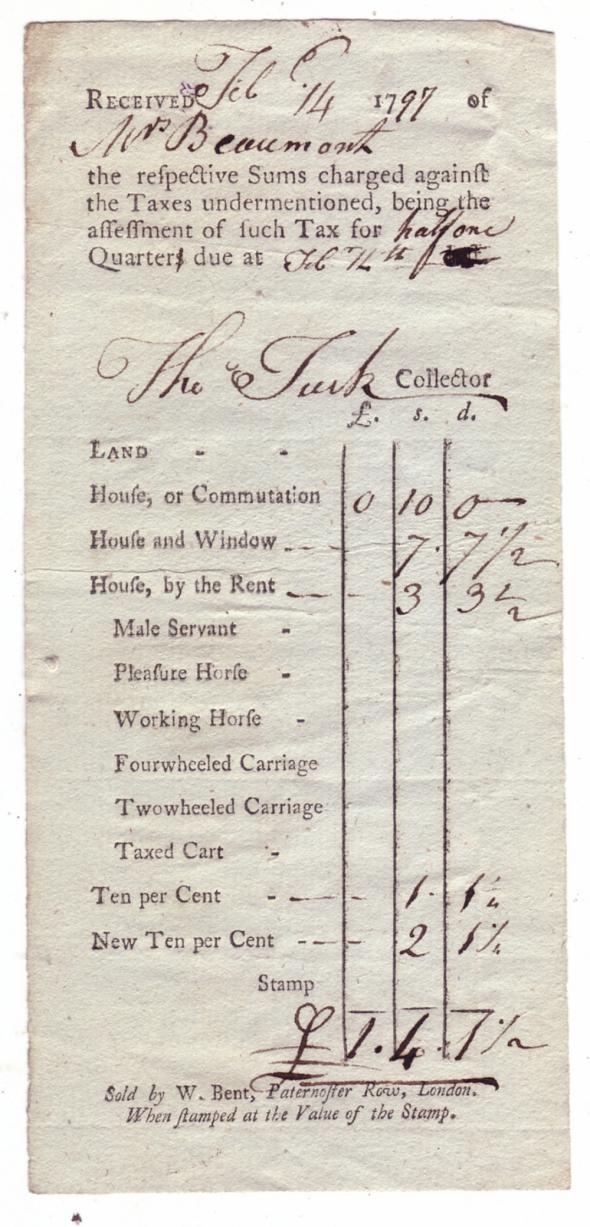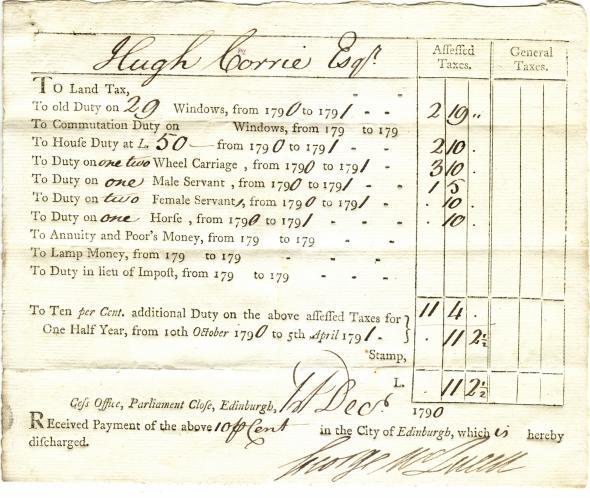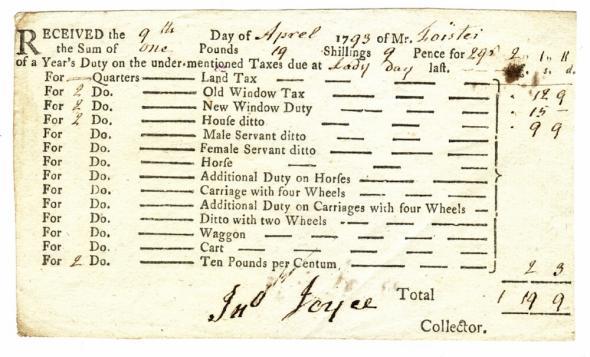This small group of receipts for taxes paid in the United Kingdom, before the institution of an income tax in 1799, show how land, real estate, and other property translated into money owed in the last decade of the 18th century.
The taxes paid on land and property were only some of those levied on U.K. citizens in the 18th century, when excise duties on commodities indirectly burdened the consumer buying salt, soap, or beer. “As Britain became engaged in expensive conflicts, so the number of taxes (especially indirect taxes) multiplied and the middle classes, as well as the poorer members of society, suffered,” writes the U.K.’s National Archives. “In these circumstances it became more difficult to impose new taxes in times of peace, despite an army of revenue officers.” Given this climate, the income tax instituted in 1799 was conceived as a way to even out the tax burden.
The “window tax” noted on these receipts, instituted in 1696, was meant to act as a handy shorthand to determine the right amount of property tax due for a given building. Instead, write economists Wallace E. Oates and Robert M. Schwab, because of this tax, building owners were disincentivized to allow for ventilation. Some “attempted to reduce their tax bills by boarding up windows or by constructing houses with very few of them. In some dwellings, entire floors were windowless.” The result was sickness and squalor. This tax was levied for more than 150 years, finally being repealed in 1851.
The Princeton University Library’s Rare Book Division, which holds these receipts, offers a spreadsheet of intriguing links to other examples of 18th- and 19th-century ephemera, including address labels, advertisements, missing notices, invitations, and souvenir cards.

Princeton University Library Rare Book Division, General Ephemera Collection

Princeton University Library Rare Book Division, General Ephemera Collection
